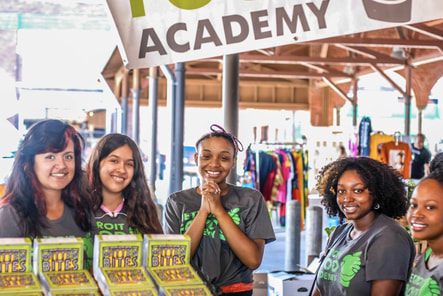It is a beautiful phenomenon when one is able to merge multiple passions. Social entrepreneurship is no exception, as its practitioners are able to cross innovation and business-related skills with solving some of the world’s most complex social, environmental, and cultural challenges. To me, social entrepreneurship goes beyond this crossover of skills and touches the lives of individuals who are plagued by these said challenges in a creative manner. In other words, the final product of a social entrepreneurial venture is not necessarily profit; rather it is a section of society left better off.
Underneath political jargon and conflicts stemming from cultural and social differences, everyone wants the world to be better off. The manifestation of a “better world” may be different for every individual, but an improved planet calls for less issues overall. However, when money and greed come into play, individuals begin to disagree about who “deserves” help and what this aid entails. This is why social entrepreneurship is necessary in the world we live in: profit is not the driving force. Social entrepreneurs are either non-profits or use for-profit methods to generate a positive return to society. When this mind-set is implemented, it is more productive to society than the standard “donation” approach.
Money is also a band-aid to many problems. Sure, it is often this band-aid that helps heal the cut, but it is taking proper care of the injury that ultimately heals. This is why social entrepreneurship is crucial, as it utilizes money, but its primary focus is to solve societal issues in a creative manner that makes a meaningful difference.
Throughout my time in Detroit, I have observed many social entrepreneurships that have played roles in the current revitalization of Detroit. However, it will be of no surprise that the one I have become closest to and has touched me in ways I could not even begin to describe is Small Batch Detroit. Small Batch is a training and employment program rooted in food within Detroit Food Academy that offers a first job for high schoolers. Small Batch owns three food companies—mitten bites, slow jams, and Detroit pop shop—whose products are made and sold by these Detroit high-schoolers. The profit earned from this venture supports Detroit Food Academy, which is the larger non-profit that works with local educators, chefs, and business owners to inspire young Detroiters through entrepreneurial experiences rooted in the culinary arts.
I have experienced first-hand what such a program does for individuals. One story in particular has allowed me to see the power of social entrepreneurship. One of the DFA fellows, Jarrell, explained that he was an aggressive, troubled kid until he stepped foot into a Detroit Food Academy after-school program. By keeping him busy after-school and exposing him to a field that he would soon find future employment in, he became fulfilled, calm, and motivated to learn more and do more. This is the power of social entrepreneurship, providing more than a band-aid for pressing issues on a macro level while simultaneously helping individuals reach their potential on a micro level, as well.
Underneath political jargon and conflicts stemming from cultural and social differences, everyone wants the world to be better off. The manifestation of a “better world” may be different for every individual, but an improved planet calls for less issues overall. However, when money and greed come into play, individuals begin to disagree about who “deserves” help and what this aid entails. This is why social entrepreneurship is necessary in the world we live in: profit is not the driving force. Social entrepreneurs are either non-profits or use for-profit methods to generate a positive return to society. When this mind-set is implemented, it is more productive to society than the standard “donation” approach.
Money is also a band-aid to many problems. Sure, it is often this band-aid that helps heal the cut, but it is taking proper care of the injury that ultimately heals. This is why social entrepreneurship is crucial, as it utilizes money, but its primary focus is to solve societal issues in a creative manner that makes a meaningful difference.
Throughout my time in Detroit, I have observed many social entrepreneurships that have played roles in the current revitalization of Detroit. However, it will be of no surprise that the one I have become closest to and has touched me in ways I could not even begin to describe is Small Batch Detroit. Small Batch is a training and employment program rooted in food within Detroit Food Academy that offers a first job for high schoolers. Small Batch owns three food companies—mitten bites, slow jams, and Detroit pop shop—whose products are made and sold by these Detroit high-schoolers. The profit earned from this venture supports Detroit Food Academy, which is the larger non-profit that works with local educators, chefs, and business owners to inspire young Detroiters through entrepreneurial experiences rooted in the culinary arts.
I have experienced first-hand what such a program does for individuals. One story in particular has allowed me to see the power of social entrepreneurship. One of the DFA fellows, Jarrell, explained that he was an aggressive, troubled kid until he stepped foot into a Detroit Food Academy after-school program. By keeping him busy after-school and exposing him to a field that he would soon find future employment in, he became fulfilled, calm, and motivated to learn more and do more. This is the power of social entrepreneurship, providing more than a band-aid for pressing issues on a macro level while simultaneously helping individuals reach their potential on a micro level, as well.

 RSS Feed
RSS Feed
